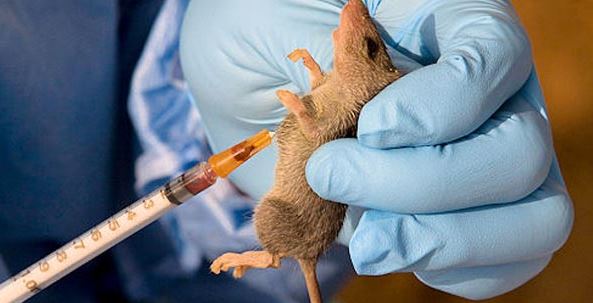
The study set up and funded by the Coalition for Epidemic Preparedness Innovations aims at providing a more detailed description of the epidemiology of Lassa fever in West Africa.
The Nigeria Centre for Disease Control and Prevention leads the Nigerian component of the study while the project is also being conducted in Benin, Guinea, Liberia, and Sierra Leone.
The event will take place from Saturday, October 22, to Monday, October 24, in Abuja.
Lassa fever is typically spread to humans by infected rodents, with severe cases potentially resulting in a haemorrhagic fever associated with a high risk of death. It is recognised by the WHO as a disease with epidemic potential
A press statement jointly signed by CEPI and the NCDC noted that Enable aims to provide a better understanding of the actual Lassa disease burden across West Africa—where there are regular outbreaks.
It read in part “Launched in late 2020, Enable aims to provide a better understanding of the true Lassa disease burden across West Africa—where there are regular outbreaks—and to guide the development of vaccines against this epidemic threat. The Enable programme has been set up and funded by CEPI, which is established as one of the largest global funders of Lassa fever research.
“First identified over fifty years ago, Lassa fever is typically spread when a person comes into contact with the body fluids of the infected rodent species Mastomys natalensis – otherwise known as the Natal multimammate mouse or rat – or food and other materials contaminated by its urine, faeces and saliva.
“Human-to-human transmission is possible but rare. While the majority of cases are asymptomatic, severe cases can result in bleeding, fever, body ache, and result in death in approximately one per cent of those infected.
“In recognition of its epidemic potential and disease burden in the West African region, the World Health Organization R&D Blueprint listed Lassa Fever as one of nine emerging infectious diseases in urgent need of research and development activities.
“The disease is endemic in parts of West Africa, but recent modelling data suggests that climate change could cause Lassa fever to spread to other regions across the African continent.
“Current knowledge about the annual burden of clinical Lassa fever is hindered by a lack of formal and standard clinical diagnoses for the illness and variability in symptoms.
“To address this knowledge gap, Enable partners are carrying out assessments, including follow-up of study participants by in-person visits by health workers or via phone calls, to obtain a more accurate estimate of the population-level incidence of Lassa fever.
“NCDC is leading the Nigerian component of Enable alongside other key partners. All Enable partners are using a core protocol and methods to allow for standardised assessments and comparable datasets across the countries.
“Supported by up to $29 million of CEPI funding, a total of around 23,000 participants across the five countries participating in Enable are being followed up for two years to better understand the incidence and associated predictors of the disease – including gender and age – as well as the spread of the virus across the region.
“There are currently no licensed vaccines to protect against Lassa fever, although some vaccines are currently under development. Data collected from the Enable programme will help to inform how and where future Lassa vaccine clinical trials can be carried out.
“CEPI has to date supported the development of six Lassa vaccines, with four candidate vaccines having progressed to Phase I clinical trials – some of the first in the world – in Liberia, Ghana, the US, and Belgium. CEPI’s ultimate goal, as part of its plan to reduce epidemic and pandemic threats, is to support the development a licensed Lassa vaccine for routine use in affected areas.
“In addition to reviewing the progress of the study so far, today’s workshop will bring the Enable partners together to network and identify research and technical priorities to focus on going forward.”
The statement quoted the Programme Steering Committee Chair of the Enable Lassa Research Programme and Principal Investigator of the Enable site, Guinea, Dr. N’Faly Magassouba, as saying “The Enable Lassa Research Programme has brought together north-to-south and south-to-south research collaborations under a single umbrella, like never before, to work collectively to provide valuable insights to support Lassa fever research and vaccine development in West Africa. These collaborations will also lead to strengthened existing clinical research and public health capacities at each study site.”
The Director-General of NCDC, Dr Ifedayo Adetifa, said: “Lassa fever is one of the recurrent and concurrent disease outbreaks Nigeria contends with. It is responsible for significant morbidity and mortality and has a significant impact on healthcare delivery in affected regions given the deaths caused by healthcare workers.
“The country has made progress over the years in the management of Lassa fever; however, many gaps still exist for example limited options for therapeutics and vaccines and the absence of evidence-informed interventions for vector control. We are happy with our mutually beneficial collaboration with CEPI, especially through the Enable programme and look forward as a nation to the availability of effective vaccines and therapeutics against Lassa fever.”
The Director of Epidemiology at CEPI, Gabrielle Breugelmans, said: “The devastating COVID-19 pandemic has again reiterated the power of scientific collaboration. The connections and learnings made by researchers at this important meeting will help Enable to progress its work and provide valuable insights into the extent of Lassa fever disease burden across West Africa which, in turn, can guide future vaccine trials.”





